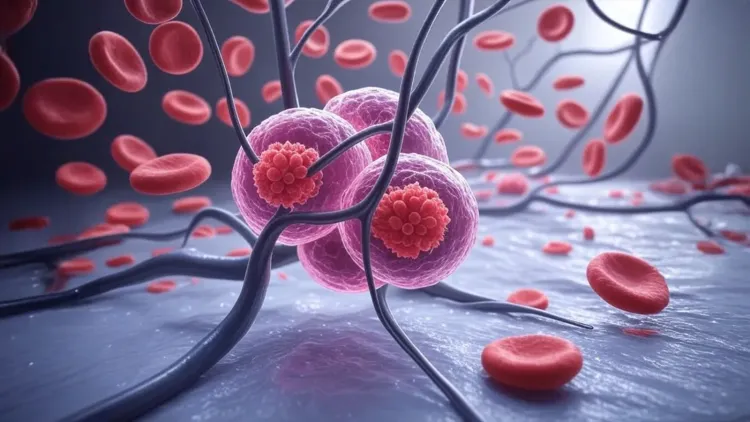Is Haemophilia B Gene Therapy Safe and Effective for the Long Term?

Synopsis
Key Takeaways
- Gene therapy offers a one-time treatment for haemophilia B.
- Long-term follow-up shows stable factor IX levels in patients.
- A nearly tenfold reduction in annual bleeding rates was observed.
- No long-term side effects or toxic events were reported.
- This approach may revolutionize treatment for haemophilia B.
New Delhi, June 13 (NationPress) A gene transfer method for treating the bleeding disorder haemophilia B has shown to be both safe and effective over the long term, as reported by scientists from the UK.
Haemophilia B is a rare genetic condition caused by low levels of the protein known as factor IX, which is essential for blood clotting.
Researchers from St. Jude Children's Research Hospital and University College London implemented a one-time gene therapy treatment for this disorder.
Their results, which are based on 13 years of follow-up data and published in The New England Journal of Medicine, indicate nearly a tenfold decrease in the annual bleeding rate, supporting the long-term effectiveness of this gene therapy.
"The primary advantage is that gene therapy is a one-time, simple intravenous infusion that is easy to administer and may have lasting benefits throughout a patient’s life," stated Andrew Davidoff, chair of the St. Jude Department of Surgery.
Haemophilia B affects approximately 1 in 25,000 male births and can vary in severity, often leading to spontaneous bleeding and life-threatening hemorrhages due to a deficiency in blood-clotting factor IX.
Historically, treatment has been costly due to the need for lifelong supplementation of the clotting factor; however, gene therapy presents a groundbreaking opportunity to treat this disorder.
The study involved 10 adults diagnosed with severe haemophilia B who received the gene therapy between March 2010 and November 2012.
Following initial reports of safety and efficacy in 2014, the patients were monitored for an additional ten years, all maintaining stable levels of factor IX and enjoying significant freedom from bleeding.
In the realm of gene therapy, ongoing questions remain about the long-term effectiveness of such treatments, with patients and families eagerly awaiting comprehensive insights into durability and expression stability.
"For these 10 patients, the factor levels have remained stable over the course of 13 years," noted Ulrike Reiss, principal investigator at the St. Jude Department of Haematology.
"Moreover, we have not observed any side effects or toxic reactions during the long-term follow-up."
The absence of toxic reactions is particularly significant, as more than 90% of the therapy is localized in the liver. While minor liver inflammation was detected shortly after the treatment, it was effectively managed through steroid therapy and did not recur after initial resolution, the research team stated.









